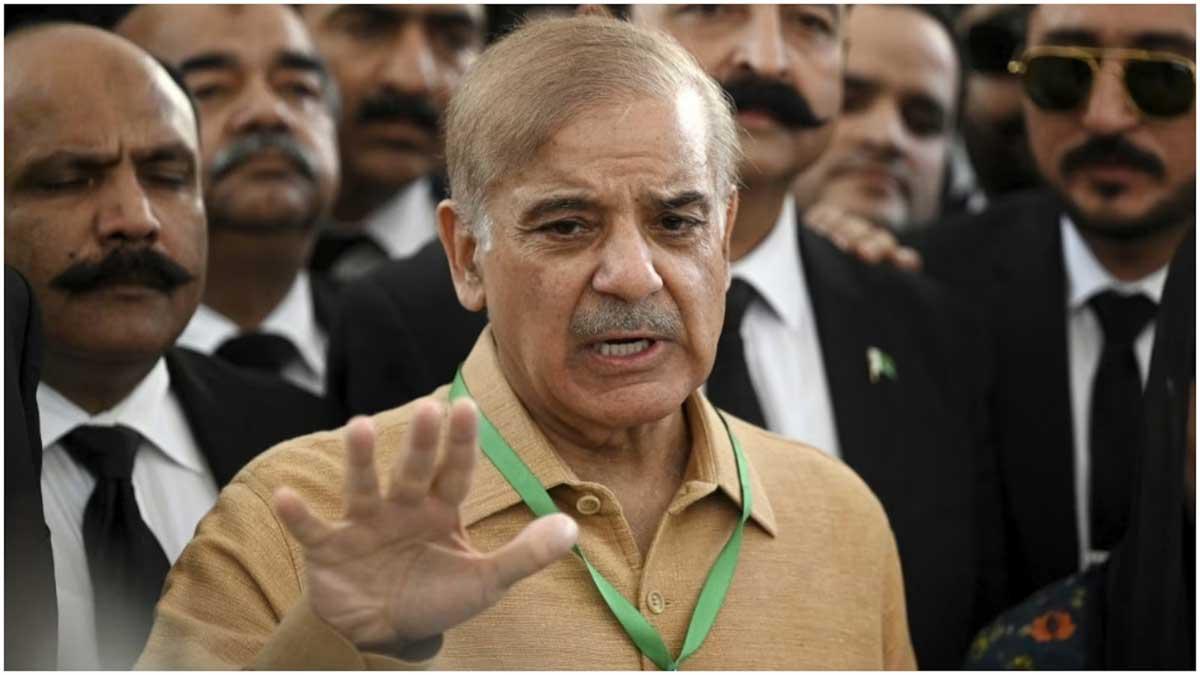Shehbaz Sharif was inaugurated as Prime Minister of Pakistan on Monday, marking his second term in office since 2022, amidst significant economic and security challenges gripping the nation.
The ceremony, held at the Aiwan-i-Sadr, the presidential palace, saw President Arif Alvi administering the oath to the 72-year-old Shehbaz in the presence of dignitaries including the three services chiefs, senior officials, diplomats, leading business figures, members of civil society, and media representatives. Caretaker premier Anwaarul Haq Kakar was also in attendance.
Commencing with the recitation of the Holy Quran, the brief ceremony proceeded smoothly with Shehbaz taking the oath of office. Former Prime Minister Nawaz Sharif, Punjab Chief Minister Maryam Nawaz, and other PML-N members, alongside Sindh Chief Minister Murad Ali Shah, graced the occasion with their presence.
Shehbaz, previously serving as prime minister from April 2022 to August 2023 in a coalition government, returned to power after the dissolution of Parliament for the recent general elections.
In a departure from previous speculation, President Alvi agreed to officiate the ceremony, indicating a shift in dynamics since Shehbaz's initial appointment.
The oath-taking event followed the recent agreement between the Pakistan Muslim League-Nawaz and the Pakistan Peoples Party to form a coalition government.
Securing a comfortable majority in the newly-elected Parliament, Shehbaz emerged victorious with 201 votes, defeating his opponent Omar Ayub Khan of the Pakistan Tehreek-e-Insaf (PTI).
Despite the allegations of vote rigging during the February 8 polls, Shehbaz's party emerged as the largest, albeit without a clear majority.
Renowned for his political acumen and administrative skills, Shehbaz was entrusted by his elder brother to negotiate coalition formations with other like-minded parties.
The new Prime Minister faces the daunting task of implementing economic reforms to alleviate the country's financial woes, while also prioritizing diplomacy to foster peaceful relations with neighboring countries.
However, challenges persist, particularly from Khan's party, which continues to protest alleged electoral manipulation. Moreover, the security landscape remains precarious, with escalating terror attacks by various extremist groups.
Meanwhile, outgoing caretaker PM Kakar has reportedly vacated the Prime Minister House, yet will continue his duties until the formal notification of the new chief executive. He has been allotted accommodation in the Minister's Enclave.
Shehbaz's leadership during his tenures as chief minister of Punjab witnessed significant infrastructure development, including the introduction of underpasses, overhead bridges, and mass transit systems.
Born in September 1951 in Lahore to a Punjabi-speaking Kashmiri family, Shehbaz completed his education at the Government College University, Lahore. His family's roots trace back to Anantnag in Kashmir, with their migration to Pakistan at the turn of the 20th century.


















